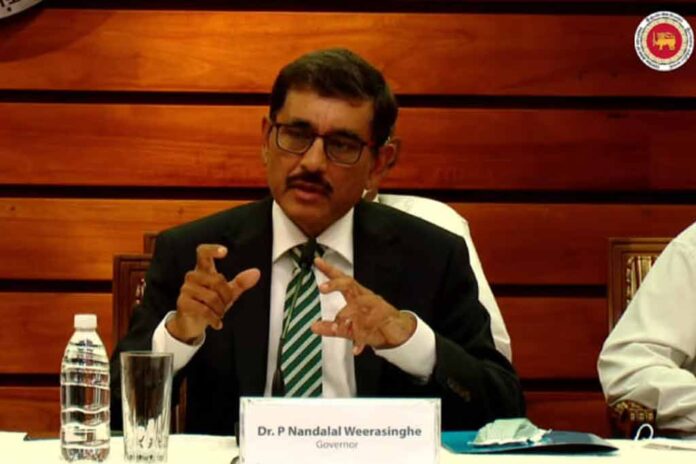By: Staff Writer
Colombo (LNW): The Governor of the Central Bank of Sri Lanka (CBSL) Dr. Nandalal Weerasinghe has revealed that in the event the Employees’ Provident Fund (EPF) participates in the Domestic Debt Optimisation (DDO) process, the opportunity loss to the EPF bond portfolio will amount to 4%.
He noted, however, should the EPF choose not to participate, the opportunity loss to the bond portfolio increases to 21% due to the higher tax rate of 30% as per the latest amendment to the Inland Revenue Bill.
Speaking before the Committee on Public Finance (COPF) in this regard on Thursday (07 Sep.), Dr. Weerasinghe further stated that all superannuation funds not eligible for the DDO will be subjected to a 30% tax increase, potentially discouraging the formation of new superannuation funds in the future.
The COPF, chaired by Dr. Harsha de Silva, approved the Inland Revenue (Amendment) Bill by a majority at the Committee meeting held in Parliament on Thursday, following which the relevant discussion took place.
As COPF Chair, Dr. de Silva, however, abstained from voting while committee member MP Patali Champika Ranawaka also abstained.
The CBSL officials clarified that the 30% tax increase, as stipulated by the Inland Revenue (Amendment) Bill, applies only to the interest income on the bond portfolio.
Furthermore, it was highlighted that in the event that superannuation funds do participate in the DDO, this will be reversed to 14%.
The Committee also questioned the ability of the CBSL to guarantee the proposed rate of a 12% return until 2025 and 9% thereafter to the superannuation funds participating in the DDO. In response, the CBSL Governor stated that it is not possible to guarantee the return to each member; however, he assured them that they will strive to achieve the proposed return.
He further mentioned that in the event that this rate cannot be maintained, there is an ongoing discussion for the treasury to step in to ensure the proposed return until 2025.
A contentious issue pertaining to superannuation funds that include the giant in the sector, Employees Provident Fund or EPF, is the tax treatment of their gross earnings.
These funds are subject to a tax of 14% on their gross income minus the cost that they have incurred in producing that income.
In fact, the superannuation funds had not been subject to tax till 1989. In that year, the Government which had been faced with a severe revenue shortage due to the JVP insurrection in the South and LTTE war in the North had chosen to tax the working population’s meagre savings by imposing a tax of 10% on their gross income.

